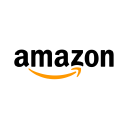My Content Writing Business Grew 50% To $783K/Year
This is a follow up story for Content-Whale Private Limited. If you're interested in reading how they got started, published almost 4 years ago, check it out here.
Hello again! Remind us who you are and what business you started.
Hello! My name is Vaibhav Kishnani. I am the founder and CEO of Content Whale, a revolutionary content writing company that serves on the motto – “To make every company a content-accelerated company.”
Content Whale is all about executing marketing strategies. We serve the mastermind's goal by curating textual and visual content to support marketing strategies. We are a team of excellent creators (Writers and designers) who bring marketing to life.

In summary, we create textual and visual content with definitive value propositions for SMBs, enterprises, and startups across industries such as education technology, healthcare, information technology, human resources, finance, lifestyle, and more.
While we provide 30+ content writing services to these industries, SEO articles and blogs are our “flagship service”. We...

Download the report and join our email newsletter packed with business ideas and money-making opportunities, backed by real-life case studies.

Download the report and join our email newsletter packed with business ideas and money-making opportunities, backed by real-life case studies.

Download the report and join our email newsletter packed with business ideas and money-making opportunities, backed by real-life case studies.

Download the report and join our email newsletter packed with business ideas and money-making opportunities, backed by real-life case studies.

Download the report and join our email newsletter packed with business ideas and money-making opportunities, backed by real-life case studies.

Download the report and join our email newsletter packed with business ideas and money-making opportunities, backed by real-life case studies.

Download the report and join our email newsletter packed with business ideas and money-making opportunities, backed by real-life case studies.

Download the report and join our email newsletter packed with business ideas and money-making opportunities, backed by real-life case studies.











































